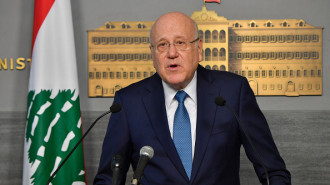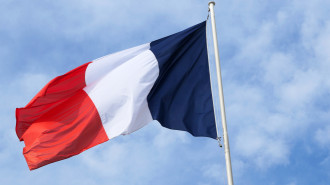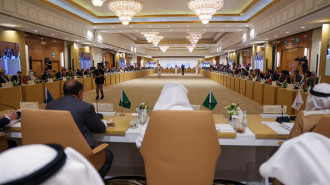Voter turnout in Algeria just 20 percent as protests against 'rigged election' grip the country
Voter turnout in Algeria just 20 percent as protests against 'rigged election' grip the country
With just hours to go before polling closes in the North African country, just 20 percent of voters turned out.
3 min read
As protests rage across Algeria, early figures on turnout for the unpopular elections stand at just 20 percent this afternoon, according to the country’s independent election monitoring authority.
More than 24 million people are eligible to vote.
Polls opened at 7am GMT and will close at 6pm GMT, as the biggest social movement in decades sweeps across the country to remove the ruling elite from power, headed by disgraced former president Abdelaziz Bouteflika.
The low voter turnout coincides with calls to boycott the vote following accusations that the candidates are extensions of the existing status quo.
The low numbers indicate the electorate, made up mainly of young voters, deny the legitimacy of the election.
Previous years saw a much higher percentage of Algerians casting their ballot.
In the 2004 presidential elections, voter turnout stood at 58 percent.
In 2009, that number jumped to 74 percent, and whilst 2014 elections took a dip with a 49 percent turnout, the numbers then were still much higher.
Mohammed Charfi, the president of Algeria's election authority and former minister of justice was not worried about voter turnout, he insisted last week.
Charfi said that Hirak protesters, who are numbered at their hundreds of thousands and are concentrated across the country, are outnumbered by supporters of the vote.
Hassan Rabehi, a government spokesperson, said he was confident in the "massive" voter turnout of the Algerian people.
However, if projections are accurate, Algeria has never experienced such low turnout numbers.
Demonstrators took to the streets, where they waved Algeria flags and chanted "no vote", calling for a boycott as they faced off against police dressed in riot gear, whilst others held placards with the words "There is no vote today" and "independence" written on them.
Though the movement remains peaceful, video footage from Algeria shows police officers charging protesters and tackling them to the ground.
Whoever wins has a tough battle ahead, as citizens of the North African country continue to push back against a military-backed regime riddled with corruption.
"None of the five candidates can hope to be considered legitimate in the eyes of the protesters," said Anthony Skinner, Middle East and North Africa director at risk analysis company Verisk Maplecroft.
The situation in the country has been simmering for months, and in Bejaia, a city in the Amazigh mountain region of Kabylie it came to a head as protesters allegedly stormed polling stations, "ransacking the ballot boxes and destroying part of the electoral lists".
In the Kabyle city of Tizi Ouzou, protesters surrounded a polling station.
Expatriates appear to be abstaining from the vote too, as polling stations at Algerian embassies abroad have stayed almost empty since they opened on Saturday as Algerians opted to protest outside.
The Hirak Movement, also referred to as the Revolution of Smiles, began in Algeria on 19 February 2019, ten days after Abdelaziz Bouteflika announced his intention to run for a fifth presidential term.
Peaceful protests erupted across the country, with gatherings the likes of which had not been seen since the Algerian Civil War.
More than 24 million people are eligible to vote.
Polls opened at 7am GMT and will close at 6pm GMT, as the biggest social movement in decades sweeps across the country to remove the ruling elite from power, headed by disgraced former president Abdelaziz Bouteflika.
The low voter turnout coincides with calls to boycott the vote following accusations that the candidates are extensions of the existing status quo.
The low numbers indicate the electorate, made up mainly of young voters, deny the legitimacy of the election.
Previous years saw a much higher percentage of Algerians casting their ballot.
In the 2004 presidential elections, voter turnout stood at 58 percent.
In 2009, that number jumped to 74 percent, and whilst 2014 elections took a dip with a 49 percent turnout, the numbers then were still much higher.
Mohammed Charfi, the president of Algeria's election authority and former minister of justice was not worried about voter turnout, he insisted last week.
Charfi said that Hirak protesters, who are numbered at their hundreds of thousands and are concentrated across the country, are outnumbered by supporters of the vote.
|
|
However, if projections are accurate, Algeria has never experienced such low turnout numbers.
Demonstrators took to the streets, where they waved Algeria flags and chanted "no vote", calling for a boycott as they faced off against police dressed in riot gear, whilst others held placards with the words "There is no vote today" and "independence" written on them.
Though the movement remains peaceful, video footage from Algeria shows police officers charging protesters and tackling them to the ground.
Whoever wins has a tough battle ahead, as citizens of the North African country continue to push back against a military-backed regime riddled with corruption.
"None of the five candidates can hope to be considered legitimate in the eyes of the protesters," said Anthony Skinner, Middle East and North Africa director at risk analysis company Verisk Maplecroft.
The situation in the country has been simmering for months, and in Bejaia, a city in the Amazigh mountain region of Kabylie it came to a head as protesters allegedly stormed polling stations, "ransacking the ballot boxes and destroying part of the electoral lists".
In the Kabyle city of Tizi Ouzou, protesters surrounded a polling station.
Expatriates appear to be abstaining from the vote too, as polling stations at Algerian embassies abroad have stayed almost empty since they opened on Saturday as Algerians opted to protest outside.
The Hirak Movement, also referred to as the Revolution of Smiles, began in Algeria on 19 February 2019, ten days after Abdelaziz Bouteflika announced his intention to run for a fifth presidential term.
Peaceful protests erupted across the country, with gatherings the likes of which had not been seen since the Algerian Civil War.

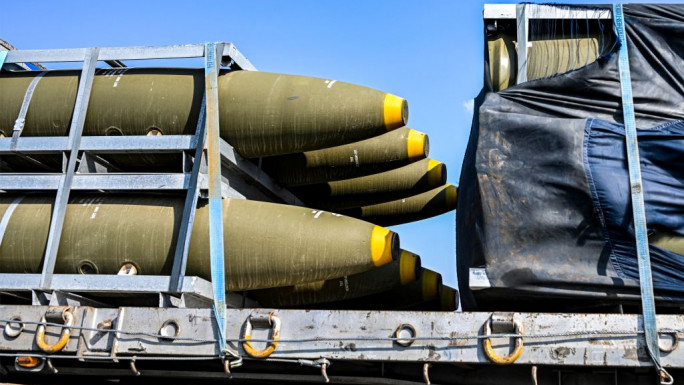
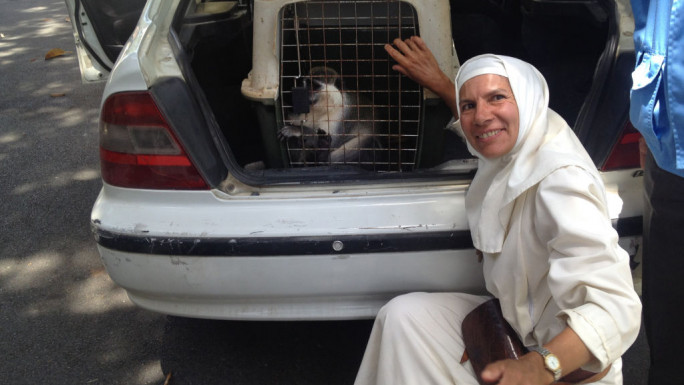
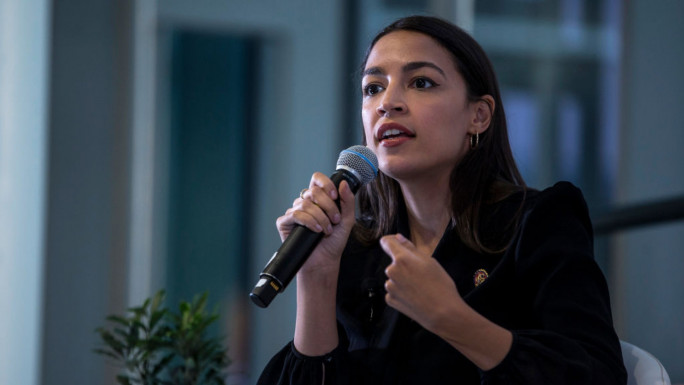
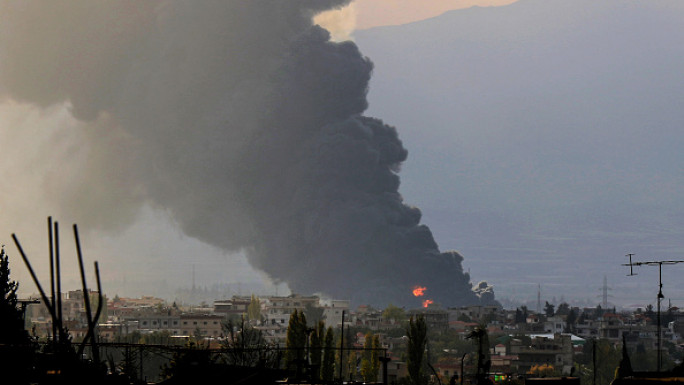
 Follow the Middle East's top stories in English at The New Arab on Google News
Follow the Middle East's top stories in English at The New Arab on Google News
